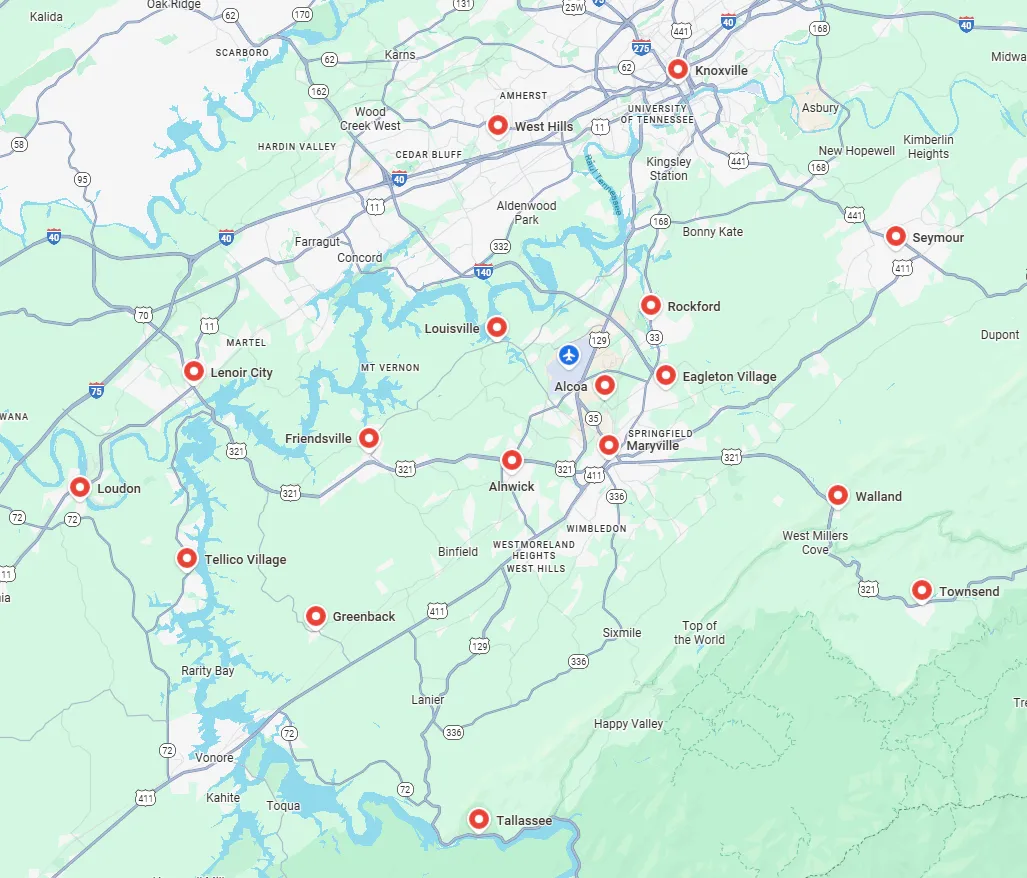DIY Tips for Maintaining Your HVAC System

DIY Tips for Maintaining Your HVAC System
Keeping your HVAC system in good working order is essential for maintaining comfort in your home, especially during extreme weather conditions. Regular maintenance can not only extend the life of your system but also improve energy efficiency and reduce repair costs. While it’s always a good idea to call a professional for complicated repairs, there are several DIY tips for maintaining your HVAC system that homeowners can handle themselves.
By following these DIY tips for maintaining your HVAC system, you can ensure it runs smoothly and efficiently, saving both time and money. This guide will cover practical tips to keep your system in peak condition year-round.
1. Change Your Air Filters Regularly
One of the most important and straightforward DIY tips for maintaining your HVAC system is to change the air filters regularly. Dirty filters restrict airflow, making your system work harder to heat or cool your home. This not only leads to higher energy bills but can also reduce the lifespan of your HVAC unit. Ideally, air filters should be replaced every 1-3 months, depending on the type of filter and usage.
When changing the filter, ensure it’s the correct size and type recommended by your HVAC system manufacturer. You can find these details in the owner's manual or on the current filter. A clean filter improves airflow and overall system efficiency, preventing future problems.
2. Keep the Area Around the Outdoor Unit Clear
Your HVAC system's outdoor unit, often referred to as the condenser or compressor, needs plenty of space to breathe. Leaves, grass, and debris can accumulate around the unit, obstructing airflow and reducing its efficiency. One of the most overlooked DIY tips for maintaining your HVAC system is to keep this area clean and clear.
Make it a habit to inspect the outdoor unit regularly and remove any debris. Trim back plants or bushes to ensure there's at least two feet of clearance around the unit. During the fall, be particularly mindful of leaves that may fall onto or around the unit. Keeping this area free from obstructions allows the system to run efficiently and avoid overheating.
3. Inspect and Clean the Coils
Both the evaporator and condenser coils in your HVAC system play a vital role in the cooling process. Over time, dirt and debris can collect on these coils, reducing their ability to absorb and release heat. This is why inspecting and cleaning the coils is another critical DIY tip for maintaining your HVAC system.
The outdoor condenser coils can be cleaned using a garden hose to gently wash away debris. Make sure the system is turned off before starting the cleaning process. For indoor evaporator coils, you can use a soft brush or a vacuum cleaner with a brush attachment to remove dirt. Regularly cleaning the coils will improve the system's efficiency and prevent costly repairs down the line.
4. Check the Thermostat Settings
Your thermostat plays a key role in regulating the temperature in your home, and it’s essential to ensure it’s functioning correctly. One of the simplest DIY tips for maintaining your HVAC system is to check your thermostat settings regularly. For example, if your HVAC system is constantly running or turning on and off frequently, it may indicate a problem with the thermostat.
Consider upgrading to a programmable or smart thermostat, which allows you to set temperatures based on your schedule. Smart thermostats can also provide valuable insights into your HVAC system's performance and suggest ways to improve efficiency. If you're not sure whether your thermostat is working properly, double-check the settings, and consult your system's manual for troubleshooting tips.
5. Seal Air Duct Leaks
Leaky air ducts can significantly reduce your HVAC system's efficiency by allowing conditioned air to escape before it reaches its intended destination. This leads to uneven temperatures throughout your home and higher energy bills. Sealing these leaks is one of the most effective DIY tips for maintaining your HVAC system.
Start by inspecting your air ducts for visible gaps or leaks, especially at the joints where duct sections meet. Use metal-backed duct tape or mastic sealant to cover any leaks or cracks. Ensuring your ducts are properly sealed will improve airflow, lower your energy bills, and make your home more comfortable.
For more personalized advice on maintaining your HVAC system or to schedule a service, reach out to Everest Air Heating and Cooling and get professional help from our experienced team.
6. Clean and Inspect the Vents
Another important DIY tip for maintaining your HVAC system is to regularly clean and inspect the vents and registers throughout your home. Dust, pet hair, and debris can accumulate in these areas, blocking airflow and reducing the system's efficiency.
Use a vacuum cleaner with a brush attachment to clean the vents and remove any dust buildup. Ensure that furniture, curtains, or other objects are not blocking the vents. Blocked vents can lead to uneven temperatures and cause your system to work harder than necessary. Keeping the vents clean and unblocked ensures optimal airflow and performance.
7. Check for Unusual Noises
While HVAC systems aren’t completely silent, loud or unusual noises can indicate a problem. Common noises to listen for include rattling, banging, squealing, or grinding sounds. Identifying the source of these sounds is a key DIY tip for maintaining your HVAC system before they develop into more significant issues.
Inspect your system for loose parts, debris, or worn-out components that could be causing the noise. Tighten any loose screws or panels, and if the sound persists, consult a professional. Ignoring strange noises could lead to expensive repairs or system failure.
8. Monitor Energy Bills
One of the best DIY tips for maintaining your HVAC system is to monitor your energy bills for any unexpected increases. A sudden spike in energy consumption could indicate that your system is working harder than usual due to an underlying issue. This could be caused by dirty air filters, a malfunctioning thermostat, or even a refrigerant leak.
By comparing your monthly energy bills, you can catch problems early and take corrective action before they become expensive repairs. If you notice a significant increase in energy usage without a corresponding change in your household habits, it may be time to schedule a professional inspection.
9. Check the Refrigerant Levels
Low refrigerant levels can lead to poor cooling performance and increased energy usage. Checking refrigerant levels is typically a job for professionals, but it’s good to be aware of this potential issue. If your system is not cooling as efficiently as it used to, it could be due to a refrigerant leak. Keep an eye on any warning signs such as ice buildup on the evaporator coils, hissing noises, or warm air blowing from the vents.
If you suspect a refrigerant issue, it's best to call a professional technician to inspect the system and recharge the refrigerant. Refrigerant leaks require specialized equipment and handling, making this one of the more advanced DIY tips for maintaining your HVAC system to be mindful of.
10. Schedule Professional Tune-Ups
While there are many DIY tips for maintaining your HVAC system, it’s still important to schedule professional Tune-Ups at least once a year. During these Tune-Ups, a trained technician will inspect your system, clean components, and make necessary adjustments to ensure everything is running efficiently.
Regular Tune-Ups can help catch minor issues before they become major problems, extend the life of your system, and improve overall performance. Be proactive and schedule Tune-Ups in the spring and fall to ensure your system is ready for the hot summer months and the cold winter season.
Call a Professional
If you're unsure about how to handle any HVAC maintenance task, or if your system needs a professional Tune-Up, contact us today at Everest Air Heating and Cooling for expert assistance.
Frequently Asked Questions (FAQ)
Q: How often should I change my HVAC air filters?
A: You should change your HVAC air filters every 1-3 months, depending on usage and the type of filter.
Q: Can I clean my HVAC system coils myself?
A: Yes, you can clean the outdoor condenser coils using a garden hose and the indoor evaporator coils with a soft brush or vacuum cleaner.
Q: How can I improve my HVAC system's efficiency?
A: Regular maintenance tasks such as changing air filters, cleaning coils, and sealing duct leaks can improve your HVAC system's efficiency.
Q: Why is my HVAC system making strange noises?
A: Unusual noises may be caused by loose parts, debris, or worn-out components. Inspect the system and tighten any loose parts.
Q: What is the purpose of refrigerant in my HVAC system?
A: Refrigerant is responsible for cooling the air in your HVAC system. Low refrigerant levels can reduce cooling performance.
Q: Can I seal duct leaks myself?
A: Yes, you can use metal-backed duct tape or mastic sealant to cover any visible gaps or leaks in the ductwork.
Q: Why are some rooms in my house cooler than others?
A: Uneven temperatures may be caused by blocked vents, leaky ducts, or an improperly sized HVAC system.
Q: How can I prevent HVAC problems in the future?
A: Regularly performing maintenance tasks such as changing filters, cleaning coils, and scheduling professional Tune-Ups can prevent future problems.
Q: What should I do if my energy bills suddenly increase?
A: Compare your energy bills and check for common issues such as dirty filters or thermostat problems. If necessary, schedule a professional inspection.
Q: How do I know when it's time to replace my HVAC system?
A: If your system is more than 10-15 years old and requires frequent repairs, it may be time to consider a replacement.





